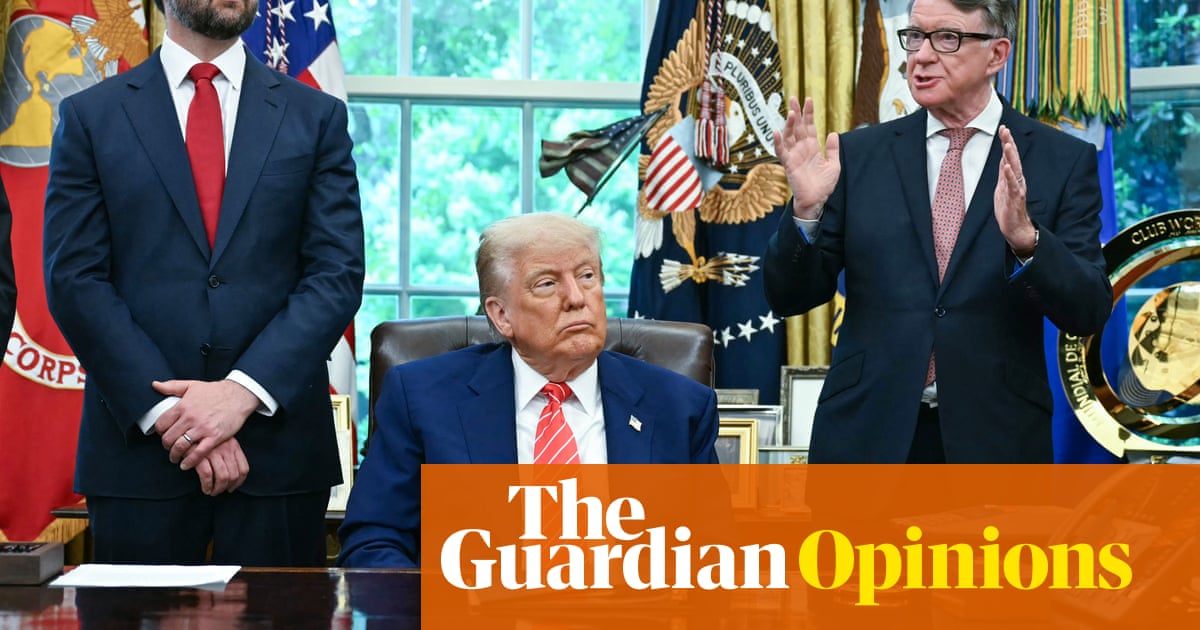More by happenstance than planning, perhaps, the Met Gala, which took place in New York on Monday night, struck a note that seemed stridently to oppose Donald Trump. The theme of the evening, devised to advertise the Costume Institute’s new exhibition, Superfine: Tailoring Black Style, was Black dandyism – an apparently defiant push back against Trump’s executive order removing initiatives to promote, “so called ‘under-represented groups’.” Even if the theme had been planned before Trump’s re-election, it was surely great to see.
It was also a rare example of politics coinciding with the $75,000-a-head fundraiser in a way that wasn’t completely tone deaf. The memory of Alexandria Ocasio-Cortez using the Met Gala to advertise the slogan “Tax the Rich” – and in the process comprehensively lose control of her message – probably contributed to Kamala Harris’s decision on Monday to slip in through a side door rather than risk the red carpet. (Harris was dressed in a black and white silk gown by Ib Kamara, while Doug Emhoff, her husband, wore a tux by Brunello Cucinelli).
Other stand outs of the evening: Colman Domingo’s fabulous floor length cape by Valentino; Madonna’s white suit and cigar (her first time at the Met Gala in seven years and the 67-year-old’s still got it); and Janelle Monáe and Whoopi Goldberg splendid in Thom Browne. Meanwhile Anna Wintour, the organiser and host, enjoyed what appears to be her annual public outing without sunglasses while flamboyantly performing her 2020 resolution – made in the face ofaccusations of racial insensitivityat Vogue – that she is“committed to doing the work.”
I say this with love (not really): what’s up with Steve Carell’s gnashers? The actor appears in Tina Fey and Tracey Wigfield’s new eight part Netflix comedy, The Four Seasons, in which three couples spend a year going on holiday with each other to talk about the health of their marriagesand nothing else.
The show is long, boring, and apparently devised by people who haven’t had even the most glancing interaction with the world everyone else inhabits for a very long time – but it’s still Tina Fey, which means that roughly every seven minutes there’s a throwaway line that is funnier than anything you’ll find in a much better show.
Meanwhile the real star of the show is Carell’s amazing veneers, which, like the old Victoria Wood joke about Deidre Barlow’s perm getting shorter and tighter with each episode of Coronation Street (“Come home, Ken, it’s up to me glasses!”) seem to get more prominent with each public appearance. They draw one’s attention to Carell’s mouth in a way at this point in the 62-year-old actor’s career, that is deserving of their own credit.
Barry Diller, the businessman and media mogul who has been married to Diane von Furstenburg for 24 years, makes the brave decision at the age of 83 to come out as what his generation would call an “openly gay man”. It’s a reveal he has chosen to make in his forthcoming memoir, Who Knew, in which he writes about the suffering he went through while hiding his sexuality for fear that it would stunt “any chance of my having a fulfilling personal life,” a sense of powerlessness that often overwhelmed him. (Diller’s been a billionaire since the 1990s).
Who knows what Diller’s deal with Von Furstenburg really is, but I can tell you that sublimating his sexuality for the social capital of being “normal” isn’t something a lot of gays, including this one, are particularly fond of, although of course everyone is on their own unique journey etc. You see it a lot in born again lesbians who have their kids with men for reasons of social and financial expediency, then pop out the other side wanting a medal, and in men who make the brave decision to acknowledge the truth about their lives, supportive wives rictus-faced by their sides. At least Diller, in excerpts from the book, seems to acknowledge that aspects of his conduct over the years have constituted the “opposite of courage,” so well done, OK, whatever.
Speaking of fancy gents: conclave! You go for years without saying the word “conclave” and then it’s the only word you use for a solid two weeks. Politicoreportsthat before the election of a new pope on Thursday, some of the 133 cardinals participating in the conclave – many for the first time – sneaked a look at the 2024 movie starring Ralph Fiennes as an ambitious cardinal running a conclave as a primer on how the process might go.
Meanwhile the elevation of the cardinal Robert Francis Prevost as the first American pope throws up certain delicious possibilities. Pope Leo XIV, as he will be known, made his address on Thursday in Spanish and what Channel 4 news called “American accented” Italian – bit rude, but anyway notably no English. Still, American he is, from the South Side of Chicago, prompting the New York Times toask the vital question – White Sox or Chicago Cubs?– and the Free Press to speculate, happily, that we now live in a world in whichthe pope “might have a Costco membership”.
The news that Brits apparently apologise up to nine times a day is, sorry, a classic example of under-reporting. The findings, from asurvey by Interflora, found that 90% of the 2,000 respondents admitted to routinely apologising for things that weren’t their fault, resulting in an annual apology-count of 3,285 a year. Triggers included squeezing past someone in a queue, summoning help at the self-check out, and sneezing, which is all well and good but overlooks the standard preface made by any British person embarking on a statement, “Um, sorry”, or the hair trigger need to panic apologise to inanimate objects you may have bumped into.
